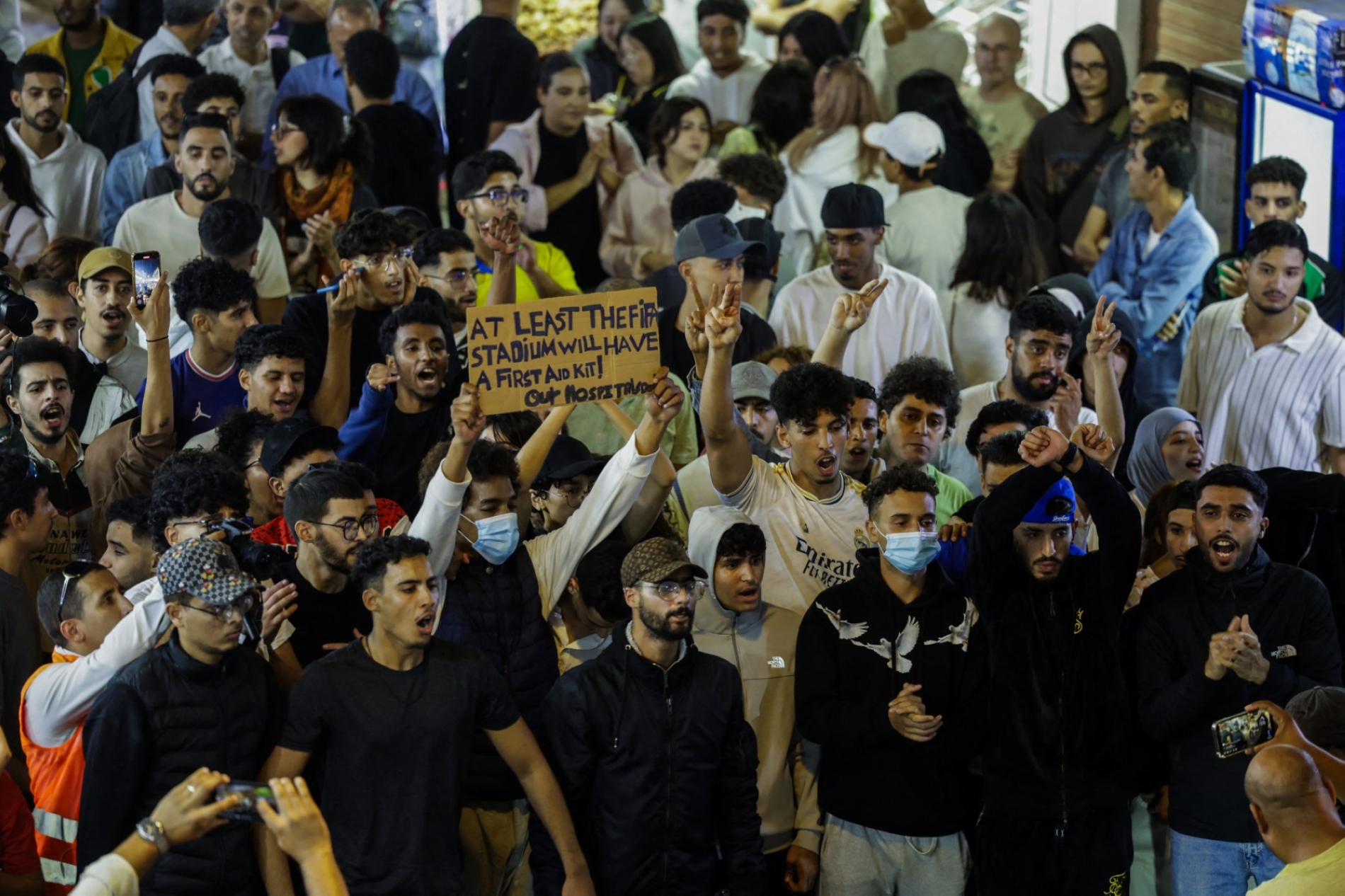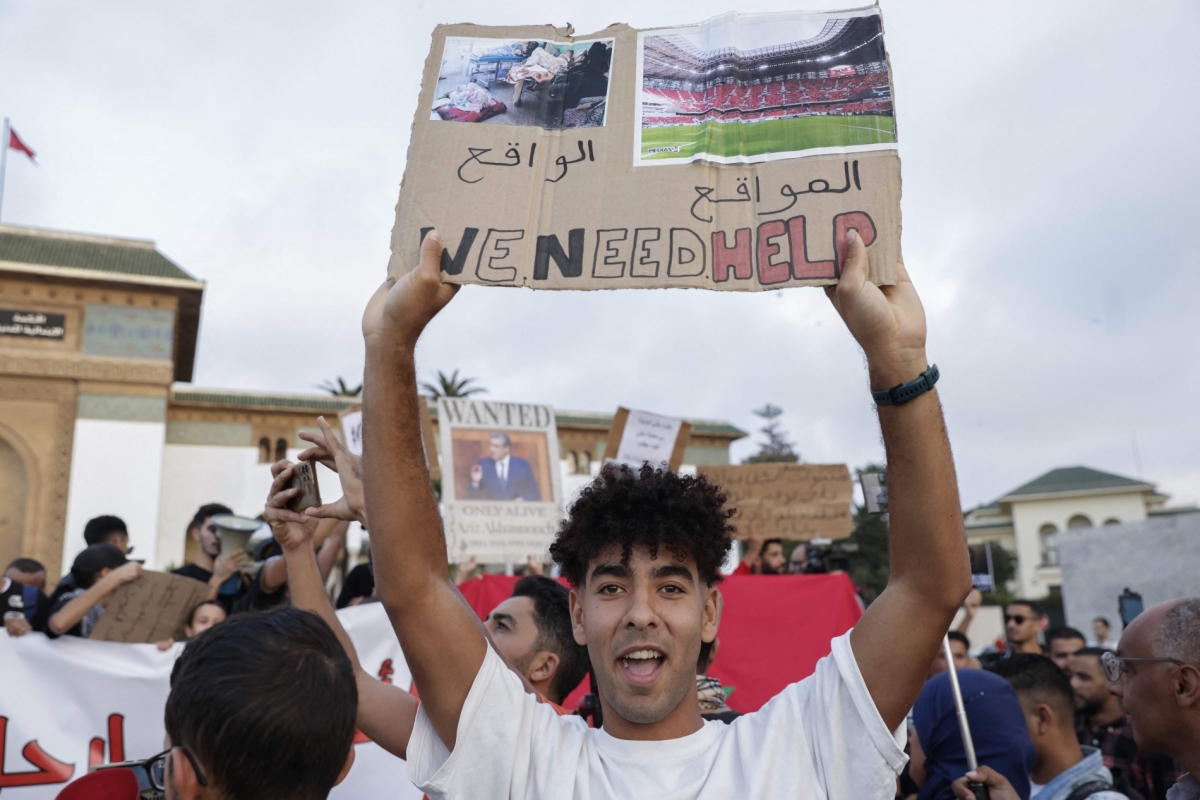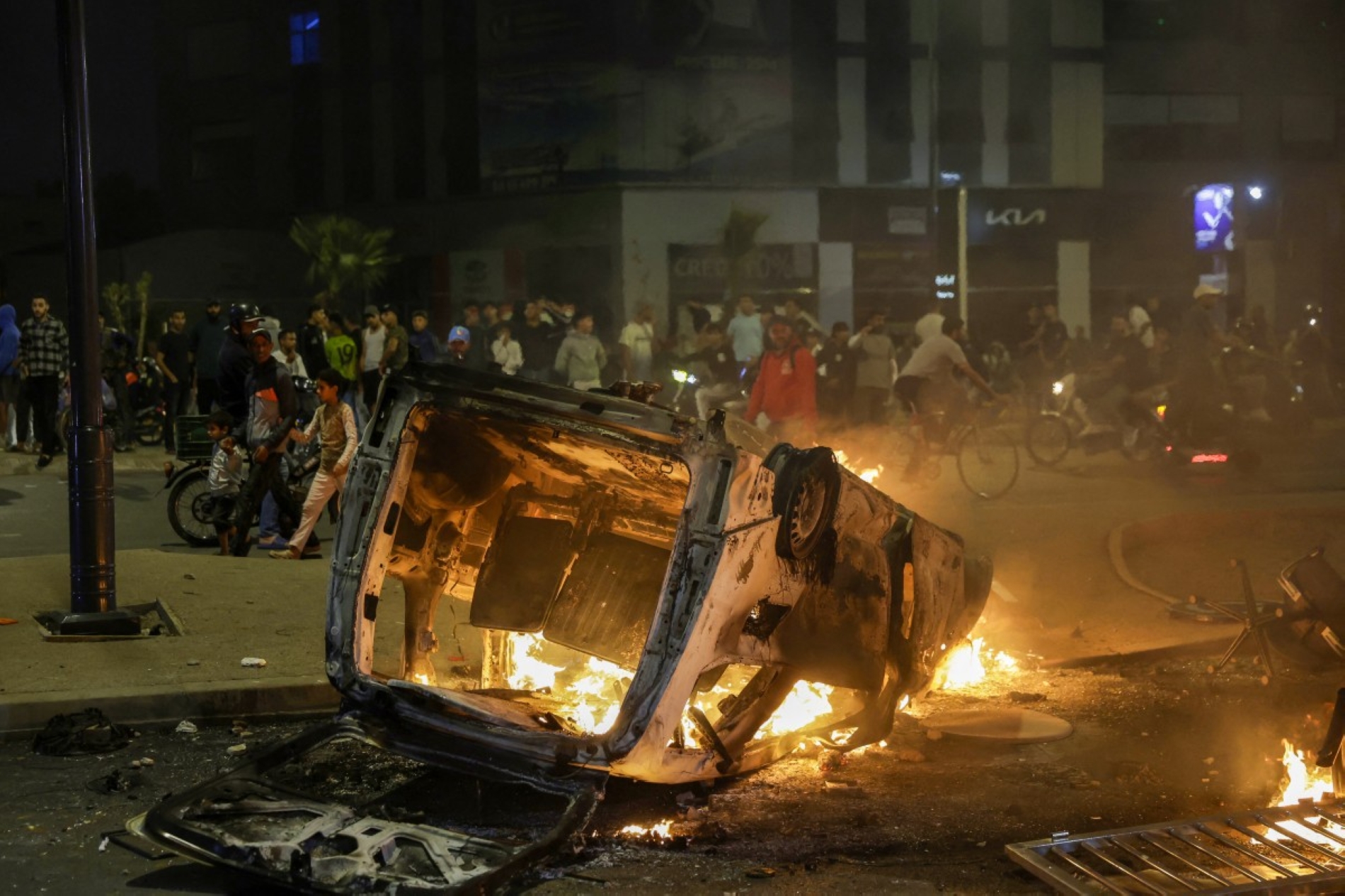A lot seems to be riding on a speech by Morocco’s King Mohammed VI before politicians on Friday, to mark the opening of a new legislative year, as protests that began at the end of September show little sign of abating. The king will address the Houses of Representatives and Councillors to kickstart the last legislative year before general elections in 2026, which will usher in a new government. Not a moment too soon, suggest many of the mainly young protesters.
They have taken to the streets in towns and cities across the country over successive nights in their thousands, demanding political and economic reforms—not least in health, education, and employment. Some ministers are sympathetic, but Prime Minister Aziz Akhannouch has said dialogue—not protests—is the way forward. The demonstrators are calling for a reassessment of public policy programmes.
Despite an average economic growth rate of 4%, young demonstrators say they have seen little benefit from this in the areas that matter most to them. Although the country is investing in modern infrastructure, the unemployment rate has climbed above 12%. Moreover, the focus of that infrastructure investment—such as a reported $5bn spent on a giant new football stadium in preparation for Morocco's co-hosting of a major tournament in 2030—has enraged the youth, who want the money to be spent on hospitals and schools instead.
Protests have been held in several Moroccan cities under the slogan: “The people want to bring down corruption.” They are being led by an anonymous and previously unknown youth movement called Gen Z-212, short for Generation Z, the nickname given to people born roughly from the mid-1990s to the early 2010s. Protests are organised on social media platforms, such as Discord, Instagram, and TikTok. Gen Z-212 has more than 160,000 Moroccan followers on Discord.
The protesters are typically aged 15-28, and most protests have been peaceful. Among the chants are “No World Cup, health comes first” and “We want hospitals, not football stadiums”. Those protesting are generally tech-savvy, have no declared political, ideological, or religious affiliation, and are deeply engaged with issues such as education, healthcare, the environment, social justice, and global peace.

Going global?
Indeed, the movement itself may be going global. Recent protests in Nepal were also organised by Generation Z, and a similar group (Gen Z-213) has now emerged in Algeria. The largely peaceful nature of the protests (with some exceptions) and the fact that demonstrators call for reforms, rather than upheaval, stands in stark contrast to the Arab Spring movements of 2010.
Morocco's Gen Z-212 said it "decided to move from the digital realm to the streets" by "peacefully demanding improvements in public services in the health and education sectors, the creation of employment opportunities for the jobless, and stronger action against corruption and the prosecution of the corrupt". It has also called for affordable housing, lower prices for basic goods, and better public transport.
These demands draw support from those who feel excluded from the economic, social, and urban development that Morocco has experienced in recent years. Many hold successive governments responsible for the worsening condition of public education and healthcare services. One of the sparks appears to have been several deaths at a maternity hospital in Agadir, attributed to a lack of care and equipment.
Although officials were dismissed and pledges were made to establish a major new university hospital, public anger spread to other regions, which were also grappling with poor services and limited job opportunities. Prime Minister Aziz Akhannouch's home region, Souss-Massa, is where the protests first broke out. His National Rally of Independents won in 2021, but the youth movements aim to kick him out next year.
Housing Minister Fatima-Zahra Mansouri, who is also Mayor of Marrakesh and leader of a government coalition partner, said: "The fact that young people have taken to the streets to protest the deterioration in health and education shows us, as government officials, that we have failed to fulfil our duties... There are undeniable problems. We have a shortage of 30,000 doctors. That cannot be resolved in a year or two."













